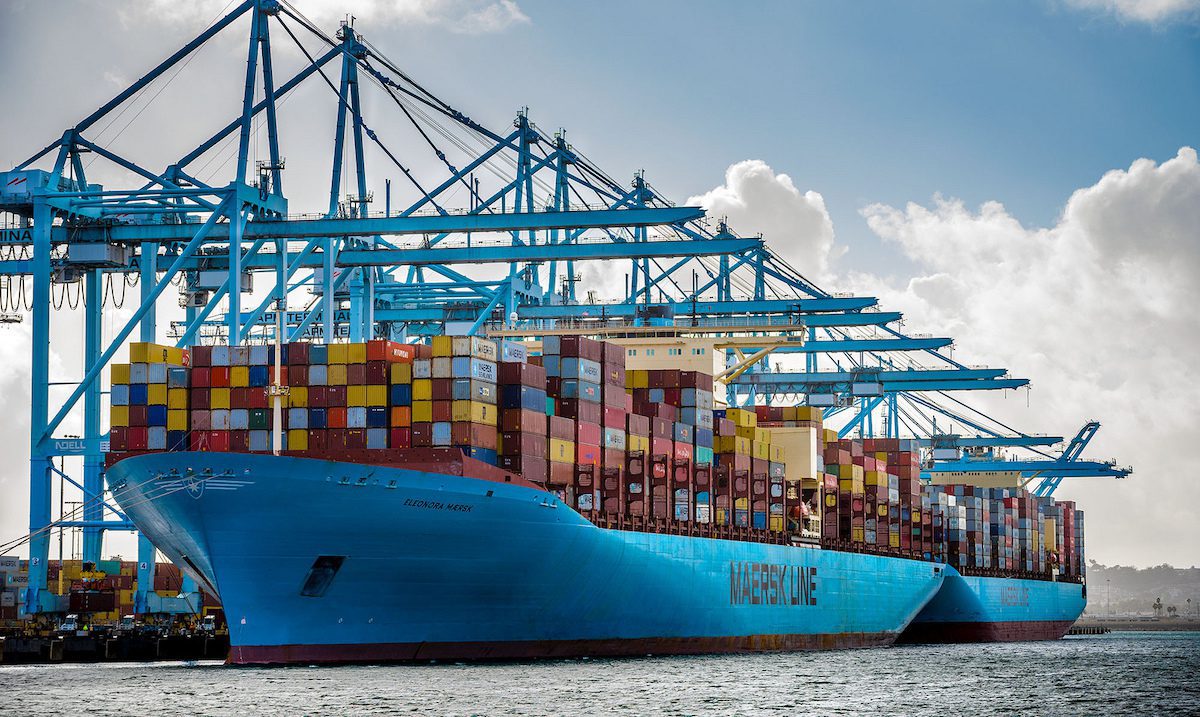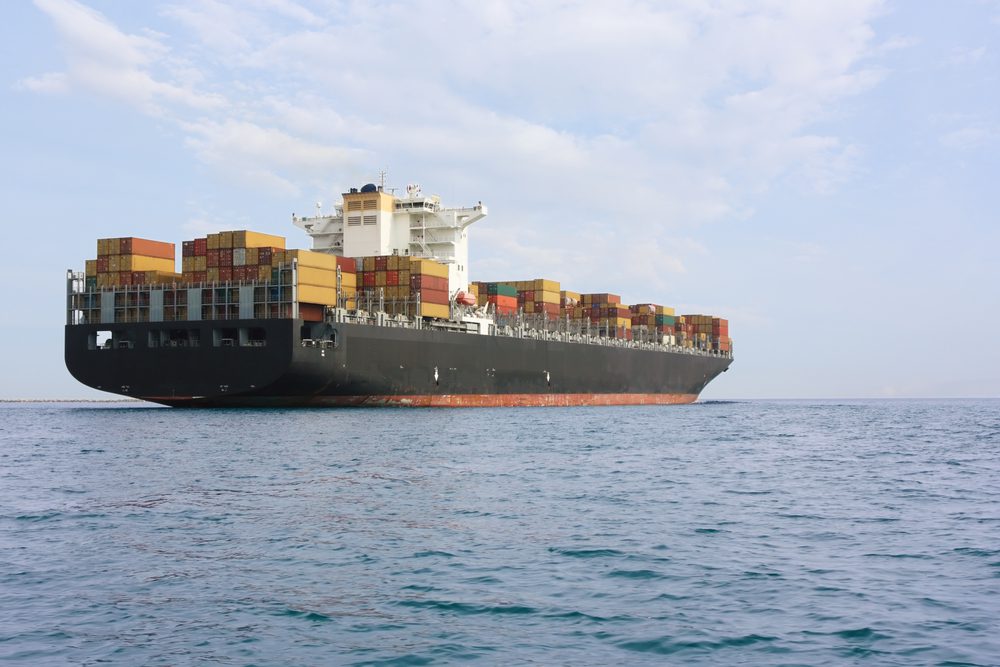One of the world’s largest container shipping lines and terminal operators is throwing its support behind a bill introduced in the U.S. House of Representatives seeking to eliminate greenhouse gas emissions from international ships calling at U.S. ports.
Congressman Alan Lowenthal (CA-47) on Tuesday published a letter sent by A.P. Moller – Maersk’s CEO Soren Skou to himself and the bill’s co-sponsor, Congresswoman Nanette Barragán (CA-44), confirming the Danish conglomerate’s support of the proposed legislation.
In addition to Maersk (the shipping line), A.P. Moller – Maersk is also parent to one of the leading global terminal operators, APM Terminals, which operates large container terminals at the Port of Los Angeles, at Pier 400, and the Port of New York and New Jersey, at Port Elizabeth.
The bill, known as the Clean Shipping Act of 2022, was introduced by Congressmen Lowenthal in July and is aimed at zeroing out pollution from all ocean shipping companies that do business with the U.S. by setting carbon intensity standards for fuels used by ships calling at U.S. ports, including eliminating carbon by 2040, and requirements to eliminate in-port ship emissions by 2030. The Environmental Protection Agency (EPA) would in the regulating agency.
Congressmen Lowenthal and Congresswoman Barragán represent districts that are home to the ports of Long Beach and Los Angeles, respectively.
“A.P. Møller-Maersk has worked on the decarbonization of the shipping sector for over a decade and we are committed to be net zero across our business and value chain by 2040 with 100% green solutions for our customers,” A.P. Møller-Maersk CEO, Soren Skou said. “We have also committed for all our new vessels to be capable of sailing on renewable fuels. This led us to order the first 12 large ocean-going container vessels capable of being operated on green methanol, to be delivered in 2024-2025. However, in order to demonstrate and accelerate the transition, clear signals from leading nations such as the U.S. and regions such as the E.U. are needed, even if such measures are inherently regional in their reach.”
The introduction of the bill comes as the International Maritime Organization (IMO), which regulates shipping globally, is still in the process of finalizing its climate change strategy. Currently, the IMO has set only an initial strategy for a 50% reducing in overall GHG from shipping by 2050, compared to 2008 levels. But with the shipping industry representing nearly 3% of global CO2 emissions, the UN agency is under mounting pressure to strengthen its target to align with the Paris Agreement goal of keeping global average temperature rise to within 1.5-degrees Celsius this century—requiring a minimum of net zero GHG emissions by 2050. The Clean Shipping Act proposes more stringent targets than the current initial strategy and likely whatever could result from the finalized strategy.
For its role, Maersk has set one of the shipping industry’s most ambitious targets, aiming for net zero greenhouse gas emissions in 2040, a decade earlier than its initial net zero 2050 target, and associated 2030 targets that will lead to significant emissions reductions in this decade.
Maersk’s Vice President of U.S. Government Relations, Doug Morgante, says now is the time for action.
“Now is the time for action and we urge the United States Congress to pass this legislation to achieve a 45% decrease on carbon dioxide equivalent reductions by 2030,” said Morgante. “The most significant challenge is the availability and cost competitiveness of the green fuels necessary to reach our targets. It is fundamental that leading governments, such as the U.S., and industry work together to accomplish long-term solutions.”
In a statement, Congressman Lowenthal applauded maersk for its climate leadership.
“We don’t have to choose between a healthy shipping industry and a healthy climate. I applaud Maersk for taking this stand and acknowledging we are facing a tipping point in the climate crisis,” Congressman Lowenthal said. “No emissions sources can go overlooked. My Clean Shipping Act is the right policy for the future of our planet, for the health of our communities, and ultimately for the resiliency of goods movement.”
Congresswoman Barragán echoed similar sentiment.
“Shipping emissions are a large and growing source of pollution that worsen climate change and harm air quality in port communities like Los Angeles,” Congresswoman Barragán said. “We need leadership from the federal government and the private sector to transition as quickly as possible to a zero-emissions shipping industry. Maersk’s support for the Clean Shipping Act is exactly the kind of leadership we need. It shows we can have a thriving port economy without compromising public health or our climate.”

 Join The Club
Join The Club











